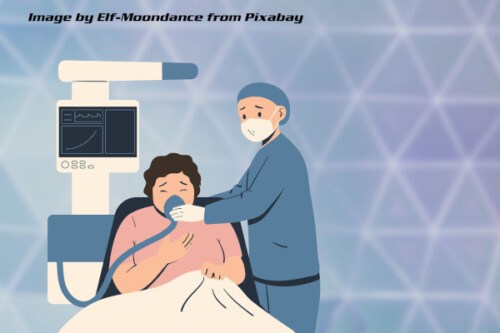Managing Life With Hemophilia
(StatePoint) Jonathan Hill was only 2 years old when he was diagnosed with hemophilia A, a bleeding condition that can lead to life-threatening complications. Like with other chronic diseases, living with hemophilia is a lifelong journey filled with daily obstacles and medical care.
Hemophilia A is caused by mutations in the gene responsible for making an important protein that helps the formation of blood clots. It’s affects approximately 1 in 5,000-10,000 births. There are many ways to treat hemophilia, including blood-clotting factor concentrates that must be administered intravenously. The average person with hemophilia self-infuses factor up to two to three times a week, or 100 to 150 times a year. When he was still a child, Hill had to learn to do this himself.
While today, there are more therapeutic options to treat hemophilia than ever before, good therapies don’t prevent everyone from experiencing severe bleeding. If someone with hemophilia falls or has a collision and their blood doesn’t clot properly, affected joints and tissue can fill with blood, and the swelling and pain can feel as bad as a broken bone.
Bringing attention to the realities of life with hemophilia is a new graphic novel project called “Blood of the Paladin,” which is the autobiographical story of Jonathan Hill, who also suffers from the related condition hepatitis C and survived a near death illness from HIV/AIDS contracted during the 1980s blood contamination crisis.
“Even with modern medical care, people living with hemophilia A still face many daily challenges, such as breakthrough bleeding and joint damage, chronic pain management, and impacts on family and careers,” says Hill. “I wanted to capture my experience to bring greater understanding to not only the burdens, but also the history and resiliency of people with hemophilia.”
Hill, an advocate, public speaker and active member of the bleeding disorders community, is teaming up with BioMarin and Believe Limited to share some important advice into managing life with a chronic disease like hemophilia:
• Be creative. Studies have shown that creative expression, with its ability to engage and connect us, can help improve well-being, encourage positive self-identity, and reduce feelings of anxiety and loneliness. Outlets such as music, art, writing, reading, cooking and gardening, can all be effective ways to redirect one’s attention from the pain and isolation of chronic disease. Hill turned to his imagination to carry him through even his darkest moments. His passion for Dungeons & Dragons (D&D), a popular role-playing game, allowed him to escape to magical worlds with friends, even when he was confined to a hospital bed for weeks at a time. He also sought out writing as a creative outlet, sharing his experiences on Facebook. Friends and family commented on how his posts helped them better identify with the struggles of people with rare diseases. Over time, he compiled his writing into a memoir, which formed the basis of the graphic novel, which explores how D&D provided an escape from the real world, helping Hill learn to process life and death situations both real and imagined.
• Create a support team. Connect with trusted friends and loved ones to form your support team. Educate them about your condition, share your experiences and challenges, and seek their support.
• Become your own medical advocate. Get informed about your own medical challenges, as well as options for treatment. Then, advocate for the course you want to take.
• Stay positive. Keep moving forward, stay positive, and you can achieve your dreams. As Hill’s dad once told him, “Put one foot in front of the other and you’ll eventually reach the summit.”
To sign up to receive a free copy of the graphic novel and listen to a podcast about the project, visit www.BloodofthePaladin.com.
“I’m hoping to highlight the work that still needs to be done by the medical community to address the challenges that people living with hemophilia face today,” says Hill. “In the meantime, whether you’re facing your own or a loved one’s medical odyssey, you have the tools and the power to face any challenge.”
Articles posted on this site are the works of their respective authors. They may be for informational or entertainment purposes and do not necessarily represent the views of this website nor imply endorsement by this website, nor endorsement of this site by the authors, nor do we get paid for posting articles. Nothing herein is intended to diagnose, treat or cure any disease. Please do your research and seek professional advice before using any information.
*****

